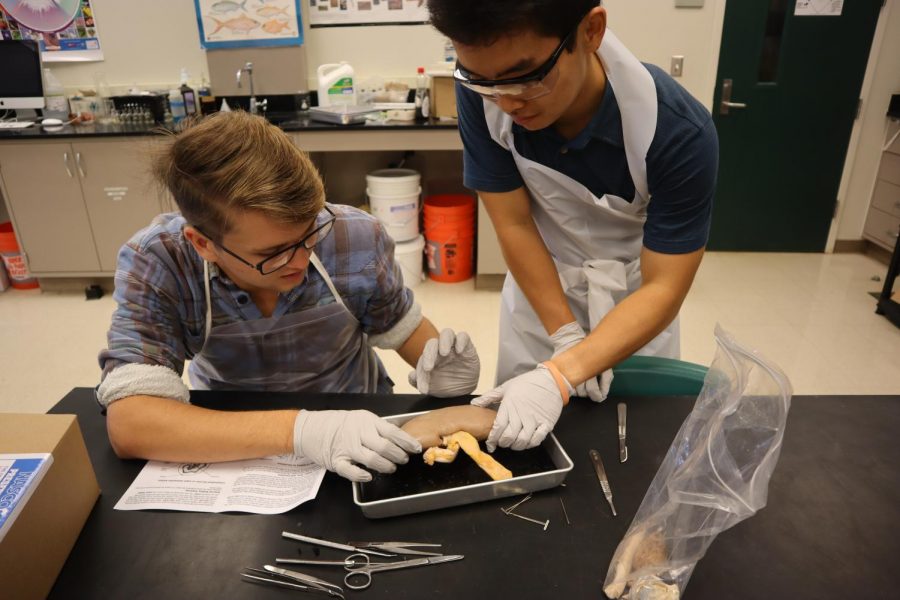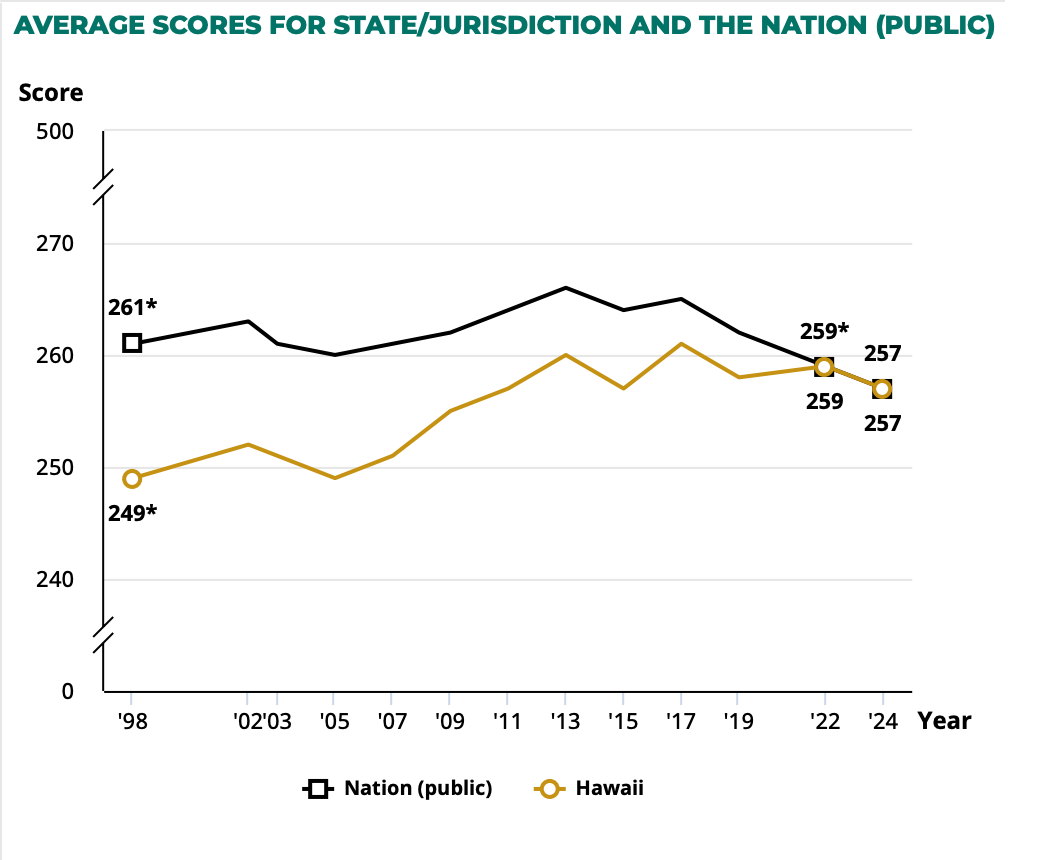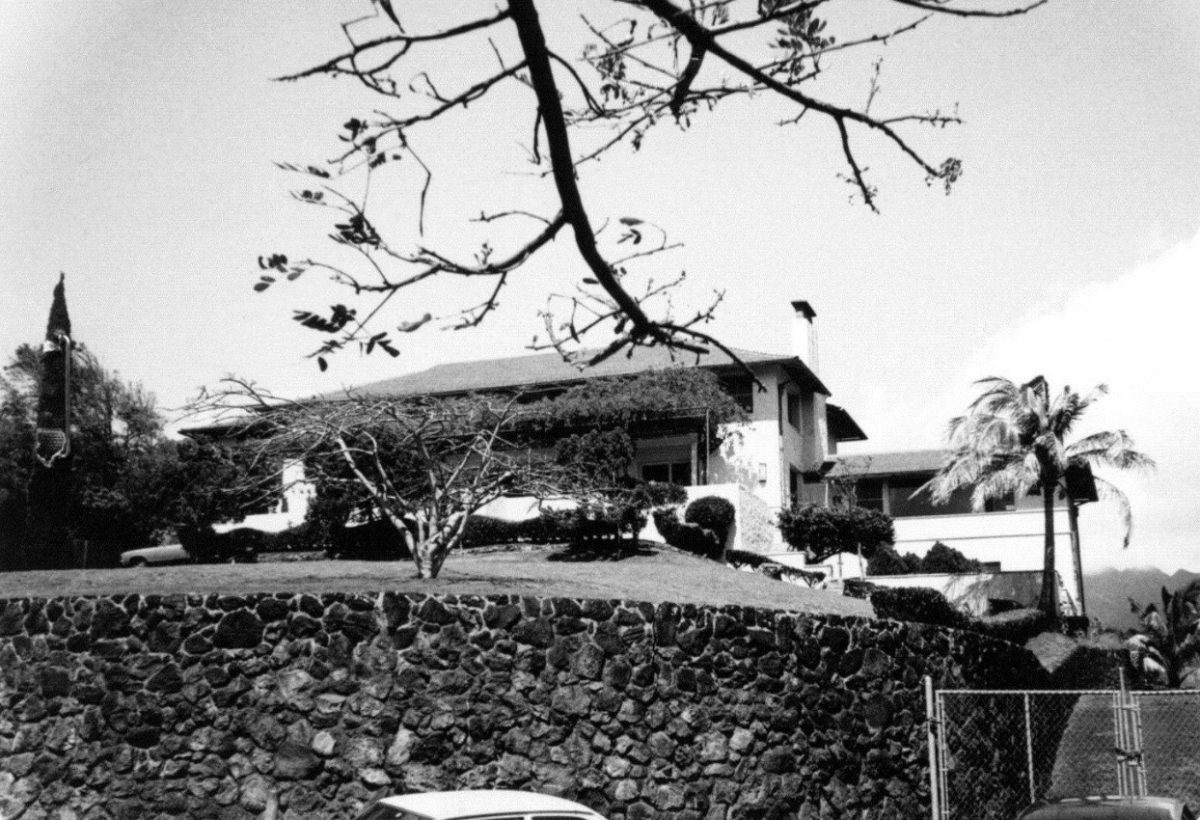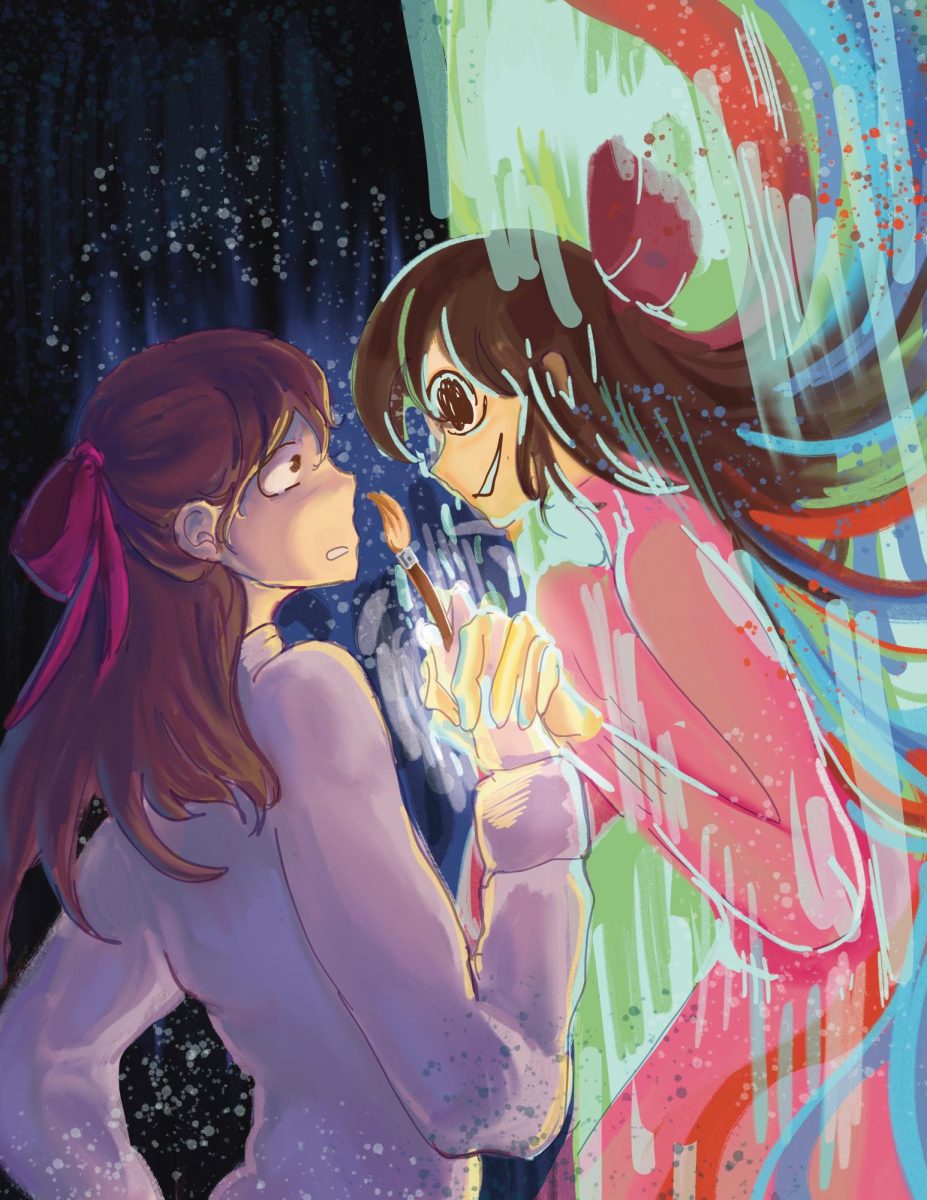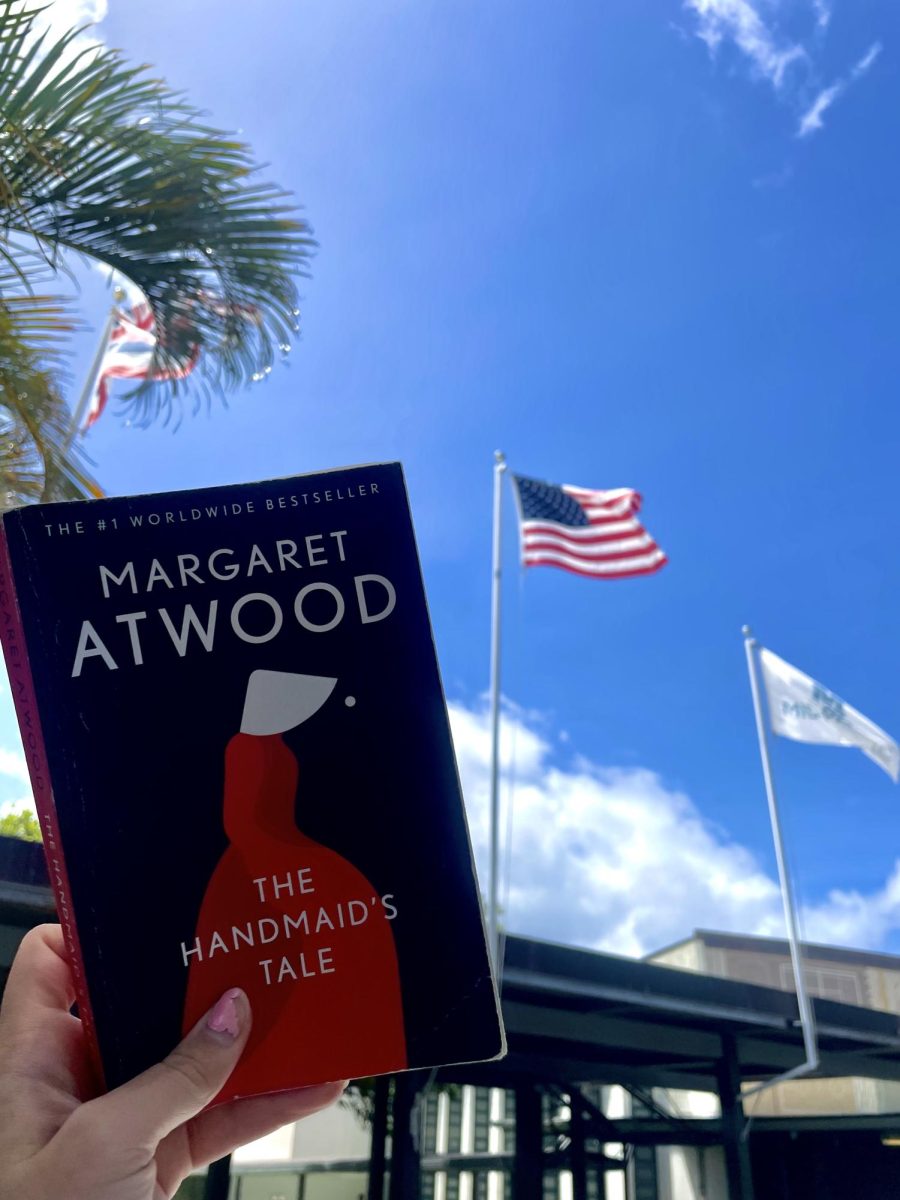Scalpels and dissections: part of new anatomy course
Staff Photographer Payton Antonio
Students in Human Anatomy and Physiology dissect animals in order to learn about their own biology.
November 8, 2018
As the students tie their aprons and lifted the goggles to their eyes, they carefully walked to the table, grasping the tray holding a deceased pig. They grabbed their first instrument, the scalpel, and delicately cut along the skin, making sure to not cut through the organs. Once all the organs appeared, they then dove deeper into the structures and functions of each part.
Working with scalpels and dissecting animals is a major part of Mid-Pacific’s new Human Anatomy and Physiology elective.
In this class, taught by Michael Valentine, students dissect animals in order to learn about the systems that make up their own body. They also gain life skills that they can take with them into college, Valentine said.
“Everyone thinks it’s Grey’s Anatomy and you grab a scalpel and the organs just pop open, but that’s not the case,” said Valentine.
The students had a difficult time during their first dissection because they assumed it would be easy, when it really takes patience and practice to perfect the skill, Valentine said.
Senior, Shyla Sato who takes human anatomy and physiology said that she became really interested in this topic when she took IB biology last year.
“I wanted to see if this elective would help me decide if I wanted to pursue this as a career,” said Sato.
For every system they learn, they get to dissect a different animal and area. With these dissections, they’ll find more and more unique things and how an animal’s system actually looks the same as a human.
Senior, Amy Warrington also in human anatomy and physiology hopes that this elective will help her decide whether she wants to go into pediatrics or child psychology.
“I’ve learned about the digestive tract and the different functions of the organs in the digestive system,” said Warrington.
The topics covered in the class are chosen by students and focus on what is most important to them, Valentine said. The major topics that came up this semester pertained to cancer and the nervous system.
“I’ve been grooming it towards the students’ curiosities as well as the topic necessities,” said Valentine.
Tanaka is currently learning about the endocrine system as her final semester project. She is learning about the hormones in the body and how everything works together to make the body function properly, Tanaka said.
“I took human anatomy and forensics because I wanted to learn about both sides and how they intertwine with one another,” said senior Skylar Tanaka who takes human anatomy and physiology.
This class is a challenge and it is not easy, said Valentine. It’s hard because it is taught at a college level. It gives students a head start on what they need to do, which is to be self disciplined, said Valentine.
“I took this class because I wanted to challenge myself and I found that anatomy is simple to catch on to,” said senior, Cameron Hersh who is in human anatomy and physiology.
The students also have a coloring book as a resource to understand the basic structures and functions of the systems.
“The book is a very useful tool because you can understand the functions of the system before seeing the actual organ when dissecting,” said Claire Park, a senior in human anatomy and physiology.
One of the labs consisted of spitting into a tube and using crackers to mix in and watch as it breaks down starch into sugars.
“It was disgusting but interesting to see what can demonstrate what our body can do,” said Park.
The class will help students who want to major in pre-medicine or nursing, but it could help students who aim for other careers as well, said Valentine.
“Whichever major you choose, you know more about your body and you can take care of yourself moving forwards,” said Valentine.
Valentine is currently proposing the class to become a year-long course instead of a semester, he said.
“Students will leave my class and not remember the fine details but there are moments they’ll always remember,” Valentine said. “Those are the moments that I believe this class gives more than anything else.”

